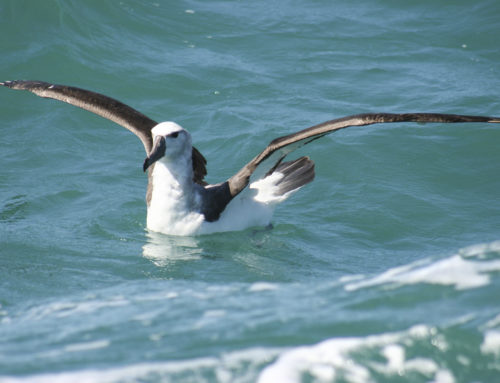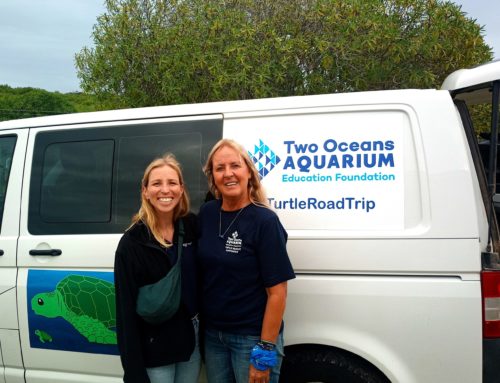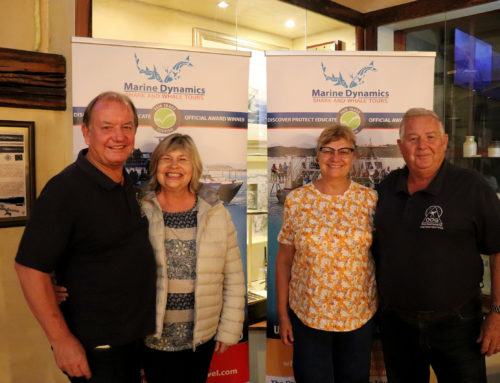Effects of Smart Position Only (SPOT) Tag Deployment on White Sharks
November 16, 2011 by dyertrust
The Trust is very excited about the latest scientific publication from our research team. Entitled Effects of Smart Position Only (SPOT) Tag Deployment on White Sharks Carcharodon carcharias in South Africa, the article on SPOT tags on white sharks has gone to press and can be downloaded here http://www.plosone.org/article/info%3Adoi%2F10.1371%2Fjournal.pone.0027242
Back in 2003 and 2004 South Africa pioneered satellite tagging in white sharksone method used was the deployment of Smart Position Only Tag or SPOT which involved catching the sharks, placing them in a cradle and drilling the tag to the dorsal fin. The method was considered controversial because people were concerned of the sharks well being and the effect of the tags on the fin. Fast forward to 2011 and we can still see two examples of the tags on sharks at Dyer Island. One in which the tag fell off within a year and one in which the tag remained and damaged the fin. The shark with damage is still alive (or at least was a few months ago) and shows white sharks can survive long term tag deployment even if the fin may be permanently damaged. This publication is very important in the wake of continued use of the tags and can help designers to form more robust tags which limit this kind of damage to the fin.
Abstract
We present 15 individual cases of sub-adult white sharks that were SPOT tagged in South Africa from 20032004 and have been re-sighted as recently as 2011. Our observations suggest SPOT tags can cause permanent cosmetic and structural damage to white shark dorsal fins depending on the duration of tag attachment. SPOT tags that detached within 1224 months did not cause long term damage to the dorsal fin other than pigmentation scarring. Within 12 months of deployment, tag fouling can occur. After 24 months of deployment permanent damage to the dorsal fin occurred. A shark survived this prolonged attachment and there seems little compromise on the animal’s long term survival and resultant body growth. This is the first investigation detailing the long term effects of SPOT deployment on the dorsal fin of white sharks.
(PLoS ONE: an inclusive, peer-reviewed, open-access resource from the PUBLIC LIBRARY OF SCIENCE. Reports of well-performed scientific studies from all disciplines freely available to the whole world. PLoS ONE has an impact factor of 4.411 placing it at #12 of all science and medicine journals.)




